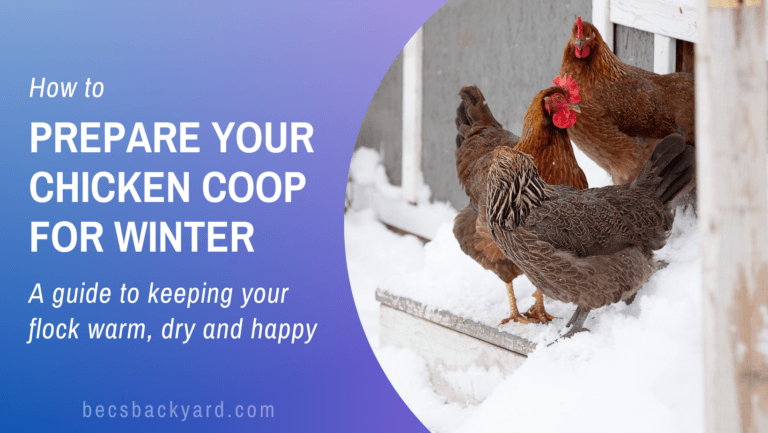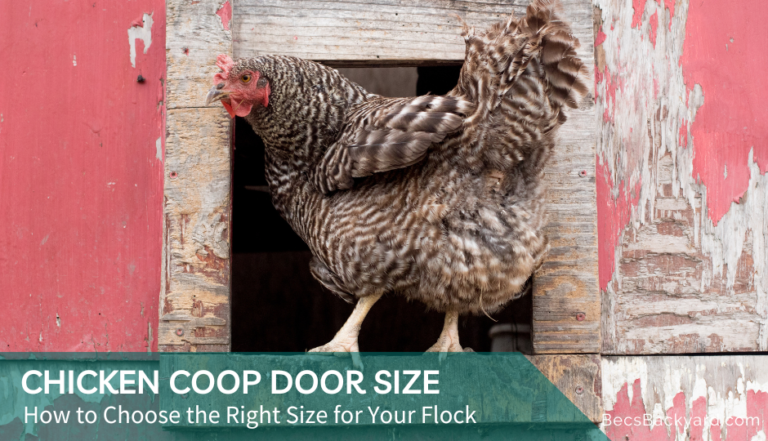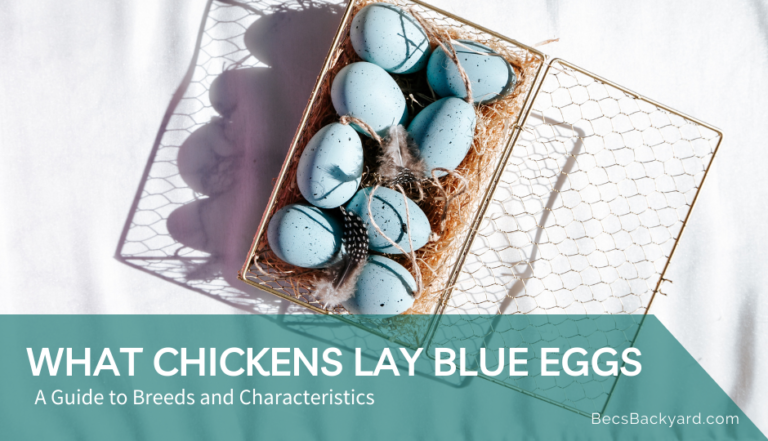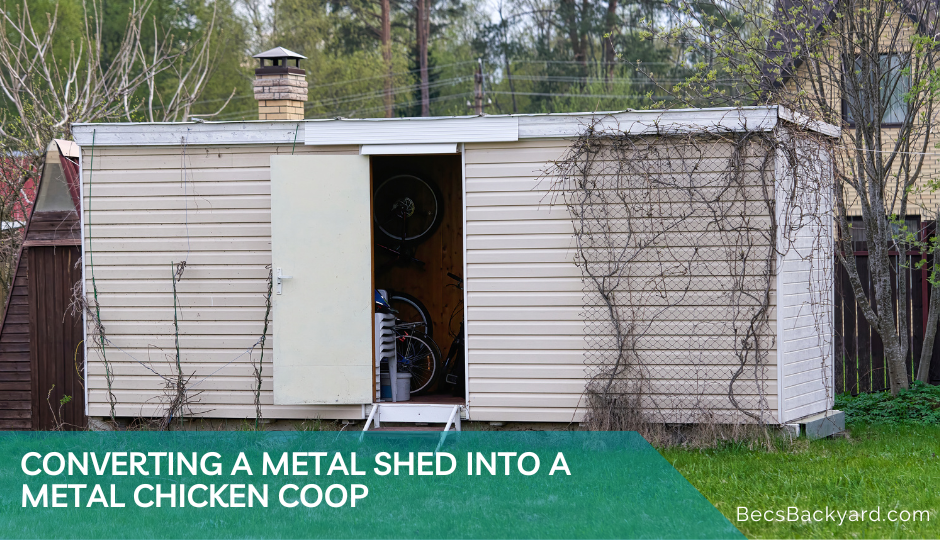Chicken Coop Maintenance: Tips for Keeping Your Flock Happy and Healthy
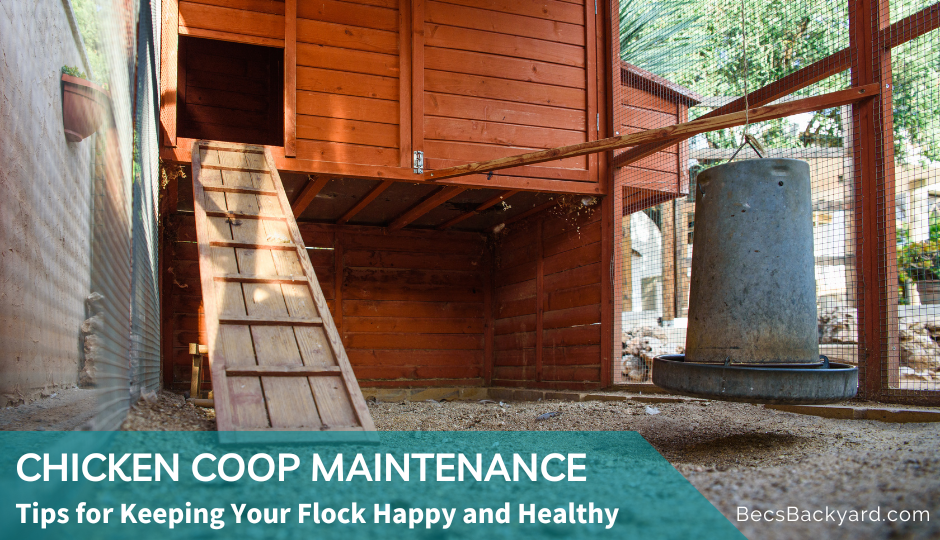
Chicken coop maintenance is an essential part of keeping your flock healthy and happy. Regular cleaning and upkeep of the coop and surrounding area can prevent the buildup of harmful bacteria and parasites that can make your chickens sick. Neglecting maintenance tasks can lead to a host of problems, including respiratory issues, mite infestations, and even death.

Why Maintain Your Chicken Coop
Chicken coop maintenance is essential to ensure the health and well-being of your flock. A well-maintained coop will not only keep your chickens happy and healthy, but it will also help to prevent the spread of diseases and parasites.
Here are some reasons why maintaining your chicken coop is important:
1. Healthier Chickens
A clean and well-maintained coop will help to prevent the spread of diseases and parasites. Chickens living in dirty and unsanitary conditions are more prone to illnesses, which can lead to a decrease in egg production and even death – these are pretty good reasons for chicken coop maintenance.
2. Better Egg Production
Chickens that are healthy and happy will produce more eggs. A clean and comfortable coop will encourage your chickens to lay more eggs, and it will also make it easier for you to collect them.
3. Cost Savings
Maintaining your chicken coop can help you save money in the long run. Regular cleaning and maintenance can prevent the need for costly repairs, and it can also help to prevent the spread of diseases, which can be expensive to treat.
4. Happy Neighbors
A well-maintained chicken coop is not only good for your chickens, but it’s also good for your neighbors. A clean and odor-free coop will prevent complaints from neighbors about unpleasant smells or noise.
Basic Chicken Coop Maintenance
Chicken coop maintenance is ensures a clean and healthy chicken coop is essential for the well-being of your flock. Basic chicken coop maintenance includes regular cleaning, removing debris and waste, and replacing bedding. Here are some tips on how to keep your chicken coop in top shape.
Cleaning the Coop
Cleaning the coop regularly is crucial for maintaining healthy living conditions for your chickens. A dirty coop can lead to the spread of diseases and parasites, and it can also cause respiratory problems for your birds. To clean the coop, remove all the chickens and their bedding, and then sweep or scrape out all the debris and waste. Use a mild detergent and water to clean all surfaces of the coop, including the roosts, nesting boxes, and walls. Rinse everything thoroughly with clean water and let it dry completely before adding new bedding and returning the chickens.
Removing Debris and Waste
Removing debris and waste from the coop is an ongoing task that should be done daily. Chickens produce a lot of waste, and it can accumulate quickly if not removed regularly. Use a shovel or rake to remove any droppings, feathers, or other debris from the coop. You can either compost the waste or dispose of it in the trash.
Replacing Flooring / Bedding
Replacing flooring / bedding is an important part of maintaining a clean and healthy coop. Flooring / bedding helps absorb moisture and odor, and it provides a comfortable surface for your chickens to walk and rest on. The material that you use will determine how often you will need to replace it. Good options include sand and wood shavings.
Advanced Chicken Coop Maintenance
When it comes to maintaining a chicken coop, there are some advanced techniques that can help ensure that the coop remains in good condition for a long time. In this section, we will discuss some of these techniques.
Inspecting the Coop for Damage
One of the most important things that a chicken owner can do is to inspect the coop regularly for any signs of damage. This can include checking for cracks in the walls or roof, loose or missing boards, and any signs of wear and tear. By catching these issues early, the owner can prevent them from becoming bigger problems down the line.
To make this process easier, the owner can create a checklist of items to inspect, such as the walls, roof, doors, windows, and flooring. They can also use a flashlight to check for any signs of damage in hard-to-reach areas.
Repairing the Coop
If any damage is found during the inspection, it is important to repair it as soon as possible. This can involve replacing any damaged boards or panels, sealing any cracks, and reinforcing weak areas. It is important to use materials that are safe for chickens, such as untreated wood and non-toxic sealant.
To make repairs easier, the owner can keep a supply of materials on hand, such as spare boards, nails, screws, and sealant. They can also create a schedule for regular maintenance and repairs, such as replacing boards every few years or sealing cracks annually.
Preventing Pest Infestations
Another important aspect of advanced chicken coop maintenance is preventing pest infestations. This can include keeping the coop clean and dry, sealing any holes or cracks where pests can enter, and using natural pest control methods, such as diatomaceous earth or essential oils.
To prevent pests from entering the coop, the owner can use wire mesh or hardware cloth to cover any openings, such as windows or vents. They can also use a broom or vacuum to clean up any spilled feed or bedding, as this can attract pests.
By following these advanced techniques for chicken coop maintenance, the owner can ensure that their coop remains in good condition for a long time. Regular inspections, repairs, and pest control can help prevent bigger problems down the line and keep the chickens healthy and happy.
Seasonal Chicken Coop Maintenance
Maintaining a chicken coop is a year-round task that requires regular attention. However, seasonal maintenance can help ensure that the coop is in top shape and ready to withstand the harsh weather conditions that come with each season. In this section, we will discuss the two main seasons, winter and summer, and the specific maintenance tasks required to prepare for each.
Preparing for Winter
Winter weather can be tough on chickens and their coops. Here are some essential tasks to prepare the coop for winter:
- Insulate the coop: Insulating the coop can help keep it warm and dry during the winter months. Consider using materials such as straw, hay, or even recycled denim insulation to provide extra warmth.
- Seal any drafts: Drafts can make the coop feel colder than it actually is. Inspect the coop for any gaps or holes and seal them with caulking or weatherstripping.
- Keep the coop clean: A clean coop is essential for maintaining the health of chickens during the winter. Regularly clean out droppings and replace bedding to prevent moisture buildup.
Preparing for Summer
Summer heat can be just as challenging for chickens and their coops. Here are some essential tasks to prepare the coop for summer:
- Install proper ventilation: Proper ventilation is essential to keep the coop cool during the summer months. Consider adding windows or vents to allow for airflow.
- Provide shade: Chickens need shade to stay cool during the summer. Consider planting trees or installing a shade cloth to provide relief from the sun.
- Keep the coop clean: A clean coop is essential for maintaining the health of chickens during the summer. Regularly clean out droppings and replace bedding to prevent moisture buildup.
- Provide plenty of water: Chickens need access to clean water at all times, especially during the summer months. Consider using a waterer that can hold enough water to last for several days.
By following these seasonal maintenance tasks, chicken owners can ensure that their coops are in top shape and ready to withstand the harsh weather conditions that come with each season.
FAQs
Chicken coop maintenance can be a daunting task for new and experienced chicken keepers alike. Here are some frequently asked questions and their answers to help you keep your coop clean and your chickens healthy.
How often should I clean my chicken coop?
The frequency of cleaning your chicken coop depends on several factors, such as the number of chickens you have, the size of your coop, and the weather conditions in your area. As a general rule, you should clean your coop at least once a week. However, if you have a large flock or live in a humid area, you may need to clean your coop more frequently.
What should I use to clean my chicken coop?
When cleaning your chicken coop, it is important to use safe and effective cleaning products. Avoid using harsh chemicals that can harm your chickens or leave toxic residues in your coop. Instead, use natural cleaning products such as vinegar, baking soda, and hydrogen peroxide. These products are safe, effective, and inexpensive.
How do I prevent pests in my chicken coop?
Pests such as mites, lice, and rodents can be a nuisance and a health hazard for your chickens. To prevent pests in your chicken coop, you should:
> Keep your coop clean and dry
> Remove any food or water sources that may attract pests
> Use pest-resistant materials when building your coop
How do I keep my chickens warm in the winter?
Chickens are hardy birds and can tolerate cold temperatures, but they still need protection from extreme cold. To keep your chickens warm in the winter, you should:
> Insulate your coop with straw or other insulating materials
> Provide a heat lamp or other heating source if necessary
> Keep your coop dry and draft-free
> Feed your chickens a high-quality diet to help them maintain their body heat
By following these simple chicken coop maintenance tips and guidelines, you can keep your chicken coop clean, healthy, and pest-free.
Conclusion
Chicken coop maintenance is essential for the health and well-being of your chickens. By keeping the coop clean and free of pests and predators, you can ensure that your chickens are happy and healthy.
Regular cleaning of the coop is crucial, and it is recommended to do so at least once a week. Cleaning should involve removing all bedding and replacing it with fresh, clean bedding. It is also important to clean all surfaces, including roosts, nesting boxes, and feeders, to prevent the buildup of bacteria and disease.
In addition to regular cleaning, it is important to perform routine maintenance tasks such as checking for cracks or holes in the coop walls or roof, and repairing them as necessary. This will prevent predators and pests from gaining access to the coop and harming your chickens.
It is also crucial to provide your chickens with fresh, clean water and food at all times. Ensure that their waterers and feeders are cleaned regularly to prevent the buildup of bacteria and disease.
By following these simple chicken coop maintenance tips, you can ensure that your chickens are happy, healthy, and safe in their coop. Remember, a well-maintained coop is essential for the health and well-being of your chickens.

